- Home
- Louisa May Alcott
Little Vampire Women Page 16
Little Vampire Women Read online
Page 16
Jo did not relax, for she feared another attack, and Laurie stared fixedly at her, with a comic mixture of merriment and emotion in his wicked black eyes and she knew he would enact some revenge for her calling him a mortal human boy. Beth kept her face hidden on her mother’s shoulder, but Amy stood like a graceful statue, with a most becoming ray of moonshine touching her white forehead and the flower in her hair.
It wasn’t at all the thing, I’m afraid, but the minute she was fairly married, Meg cried, “The first kiss for Marmee!” and turning, gave it with her heart on her lips. During the next fifteen minutes she looked more like a carnation than ever, for everyone availed themselves of their privileges to the fullest extent, from Mr. Laurence to old Hannah, who, adorned with a head-dress fearfully and wonderfully made, fell upon her in the hall, crying with a sob and a chuckle, “Bless you, deary, a hundred times! The blood ain’t spilled a mite, and everything looks lovely.”
Everybody cleared up after that, and said something brilliant, or tried to, which did just as well, for laughter is ready when hearts are light. After supper, people strolled about, by twos and threes, through the house and garden, enjoying the moonshine without and within. Meg and John happened to be standing together in the middle of the grass plot, when Laurie was seized with an inspiration which put the finishing touch to this unfashionable wedding.
“All the married people take hands and dance round the new-made husband and wife, as the Germans do, while we bachelors and spinsters prance in couples outside!” cried Laurie, promenading down the path with Amy, with such infectious spirit and skill that everyone else followed their example without a murmur. But the crowning joke was Mr. Laurence and Aunt March, for when the stately old gentleman chasséd solemnly up to the old lady, she just tucked her cane under her arm, and hopped briskly away to join hands with the rest and dance about the bridal pair, while the young folks pervaded the garden like butterflies on a midsummer night.
When the impromptu ball drew to a close, people began to go.
“I wish you well, my dear, I heartily wish you well, but I think you’ll be sorry for it,” said Aunt March to Meg, adding to the bridegroom, as he led her to the carriage, “You’ve got a treasure, young man, see that you deserve it.”
“Laurie, my lad, if you ever want to indulge in this sort of thing, get one of those little girls to help you, and I shall be perfectly satisfied,” said Mr. Laurence, settling himself in his easy chair to rest after the excitement of the evening.
“I’ll do my best to gratify you, Sir,” was Laurie’s unusually dutiful reply, as he carefully unpinned the posy Jo had put in his buttonhole.
The little house was not far away, and the only bridal journey Meg had was the quiet walk with John from the old home to the new. It sounded like a grand scheme at the time but now everyone worried that the happy couple would be set upon by slayers in the forest. John was arranging transport by carriage when Meg came down, looking like a pretty Quakeress in her dove-colored suit and straw bonnet tied with white. She immediately dismissed the new arrangement, citing her complete faith in her husband’s ability to protect her as well as her own not inconsiderable skills as a fighter. Although neither her parents nor her sisters were satisfied by this argument, they acknowledged that the decisions were now Meg’s to make and gathered about her to say “good-bye,” as tenderly as if she had been going to make the grand tour.
“Don’t feel that I am separated from you, Marmee dear, or that I love you any the less for loving John so much,” she said, clinging to her mother, with full eyes for a moment. “I shall come every day, Father, and expect to keep my old place in all your hearts, though I am married. Beth is going to be with me a great deal, and the other girls will drop in now and then to laugh at my housekeeping struggles. Thank you all for my happy wedding night. Good-bye, good-bye!”
They stood watching her, with faces full of love and hope and tender pride as she walked away, leaning on her husband’s arm, with her hands full of a pair of dueling pistols to fend off any attackers and the June moonlight brightening her happy face—and so Meg’s married life began.
Chapter Twenty
CALLS
Like most other young matrons, Meg embarked on her married life with the determination to be a model housekeeper. John should find home a paradise, he should always see a smiling face, should fare sumptuously every day, and never know the loss of a button. She brought so much love, energy, and cheerfulness to the work that she could not but succeed, in spite of some obstacles. Her paradise was not a tranquil one, for John could not rest or relax now that Dr. Bang was back in Concord, and he frequently railed about his ineffectiveness in apprehending the great villain who threatened his family. The trail, which had grown cold three years ago, was suddenly hot again, and John would not stop until he’d drained every last drop of blood out of the former conspirator who had now taunted him.
Meg understood her husband’s concern and tried to wait gently and patiently for him to overcome his wrath and settle calmly into married life like a new husband should. Instead, he spent hours prowling Concord, his nose flared, his eyes sharp, hunting for signs of his archenemy. In this way, the bride passed many nights in solitude, fearful of her husband, who was still a novice, despite his three years. She was, as well, in a large way intolerant of his seeming obsession, which prevented him from making a living as a bookkeeper. He’d already lost two jobs because he refused to sit quietly in an office adding columns while Bang was on the loose.
“Oh, dear,” thought Meg, on one such night, as she waited for her husband to return, “married life is very trying, and does need infinite patience as well as love, as Mother says.” The word “Mother” suggested other maternal counsels given not long ago, and received with unbelieving protests.
“John is a good vampire, but he has his faults, and you must learn to see and bear with them, remembering your own. He is very decided, but never will be obstinate, if you reason kindly, not oppose impatiently. He is very accurate, and particular about the truth—a good trait, though you call him ‘fussy.’ Never deceive him by look or word, Meg, and he will give you the confidence you deserve, the support you need. He has a temper, not like ours—one flash and then all over—but the white, still anger that is seldom stirred, but once kindled is hard to quench.”
Taking her mother’s wise words to heart, Meg sought out Jo and prevailed upon her to capture the vexing Dr. Bang, so she could finally begin married life as it ought to be. Jo consented immediately, for she was already on the hunt for Bang and his confederates. Like John, she couldn’t rest calmly in her coffin while the man who had done so much damage to Beth was at liberty, for she saw that the knowledge of his return made her sister listless and nervous, a condition only alleviated by a one-month visit to the seaside, when she was able to put the vile slayer from her thoughts. Unlike John, Jo was a cadet at Gentleman Jackson’s salon and a student of Wobblestone’s scientifical method, so she began her search with the catapult which had assaulted them during the wedding. It revealed several clues, for it was made very precisely by an excellent craftsman, and the cologne thrown upon it was of a special brew, with its sharp undernotes of masking garlic. The evidence spoke of skill, sophistication, and wealth, indicating a well-off, well-placed member of Concord society, of which there were only a few humans.
In order to find the culprit, Jo needed to infiltrate the house of her suspects, and to infiltrate the house of her suspects Jo required Amy’s assistance, for her youngest sister frequently paid social calls on the people in question.
“Come, Jo, it’s time,” said Amy, shortly after ten on the Thursday following. In order to stay current, many humans in polite society set aside at-home nights, when they were available for visits from their vampire neighbors.
“I’ve done a good many rash and foolish things in my life, but I don’t think I ever was mad enough to say I’d make six calls in one night,” Jo muttered, for she hated making calls of the formal sort.
“Jo March, you are perverse enough to provoke a saint!” cried Amy, who had been cajoled into this venture by her sister.
“You are right. Very well, I’ll go if I must, and do my best. You shall be commander of the expedition, and I’ll obey blindly, will that satisfy you?” said Jo, with a sudden change from perversity to lamblike submission.
“You’re a perfect cherub! Now put on all your best things, and I’ll tell you how to behave at each place, so that you will make a good impression. I want people to like you, and they would if you’d only try to be a little more agreeable. Do your hair the pretty way, and put the pink rose in your bonnet. It’s becoming, and you look too sober in your plain suit. Take your light gloves and the embroidered handkerchief.”
While Amy dressed, she issued her orders, and Jo obeyed them, not without entering her protest, however, for she sighed as she rustled into her new organdie, frowned darkly at herself as she tied her bonnet strings in an irreproachable bow, wrestled viciously with pins as she put on her collar, wrinkled up her features generally as she shook out the handkerchief, whose embroidery was as irritating to her nose as the present mission was to her feelings, and when she had squeezed her hands into tight gloves with three buttons and a tassel, as the last touch of elegance, she turned to Amy with an imbecile expression of countenance, saying meekly…
“I’m perfectly miserable, but if you consider me presentable, I die happy,” she said, knowing her sister was right. If she was to find the enemy, then she had to blend in and not be conspicuous in her investigations.
“You’re highly satisfactory. Turn slowly round, and let me get a careful view.” Jo revolved, and Amy gave a touch here and there, then fell back, with her head on one side, observing graciously, “Yes, you’ll do. Your head is all I could ask, for that white bonnet with the rose is quite ravishing. Hold back your shoulders, and carry your hands easily, no matter if your gloves do pinch. There’s one thing you can do well, Jo, that is, wear a shawl. I can’t, but it’s very nice to see you, and I’m so glad Aunt March gave you that lovely one. It’s simple, but handsome, and those folds over the arm are really artistic. Is the point of my mantle in the middle, and have I looped my dress evenly? I like to show my boots, for my feet are pretty, though my fangs aren’t.”
“You are a thing of beauty and a joy forever,” said Jo, looking through her hand with the air of a connoisseur at the blue feather against the golden hair. “Am I to drag my best dress through the dust, or loop it up, please, ma’am?”
“Hold it up when you walk, but drop it in the house. The sweeping style suits you best, and you must learn to trail your skirts gracefully. You haven’t half buttoned one cuff, do it at once. You’ll never look finished if you are not careful about the little details, for they make up the pleasing whole.”
Jo sighed, and proceeded to burst the buttons off her glove, in doing up her cuff, but at last both were ready, and sailed away, looking as “pretty as picters,” Hannah said, as she hung out of the upper window to watch them.
“Now, Jo dear, the Chesters consider themselves very elegant people, so I want you to put on your best deportment. Don’t make any of your abrupt remarks, or do anything odd, will you? Just be calm, cool, and quiet, that’s safe and ladylike, and you can easily do it for fifteen minutes,” said Amy, as they approached the first place, having borrowed the white parasol and been inspected by Meg.
“Let me see. ‘Calm, cool, and quiet,’ yes, I think I can promise that.” And it was true, for she planned to blend into the background so well her hosts wouldn’t notice her peeking through their drawers.
Amy looked relieved but realized soon after they arrived that she should have included “completely immobile” among her instructions, for Jo never stopped strolling about the room, examining cabinets and admiring shelves and on one particularly noteworthy occasion disappearing into the hall for a full minute.
“Try to be sociable at the Lambs’ and for goodness’ sake, do be still. You make everyone nervous with your pacing to and fro. Gossip as other girls do, and be interested in dress and flirtations and whatever nonsense comes up. They move in the best society, are valuable persons for us to know, and I wouldn’t fail to make a good impression there for anything.”
Jo promised to be agreeable, to gossip and giggle and have horrors and raptures over any trifle, but she didn’t say a word about her mobility.
Amy felt anxious, as well she might, for when Jo turned freakish there was no knowing where she would stop. Amy’s face was a study when she saw her sister skim into the next drawing room, kiss all the young ladies with effusion, beam graciously upon the young gentlemen, and join in the chat with a spirit which amazed the beholder.
“She rides splendidly,” Lucretia said, by way of compliment to Amy. “Who taught her?”
“No one. She used to practice mounting, holding the reins, and sitting straight on an old saddle in a tree. Now she rides anything, for she doesn’t know what fear is, and the stableman lets her have horses cheap because she trains them to carry ladies so well. She has such a passion for it, I often tell her if everything else fails, she can be a horse breaker, and get her living so,” Jo said, roaming around the parlor as she imitated Amy riding a horse. She told several more stories about her sister’s skill, each one a more dreadful blunder than the last. But there was still worse to come, when Jo frankly admitted that Amy painted many of their articles of clothing in order to make them lovely and fashionable, as they couldn’t afford to buy anything new.
By the time she finished her anecdote about the March girls’ thriftiness, she felt for sure the Lambs were not involved in the conspiracy, for she couldn’t pick up a hint of the cologne sent at all and she’d carefully sniffed all the members during their giddy chat. “Amy, we must go. Good-bye, dear, do come and see us. We are pining for a visit. I don’t dare to ask you, Mr. Lamb, but if you should come, I don’t think I shall have the heart to send you away.”
Jo said this with such a droll imitation of May Chester’s gushing style that Amy got out of the room as rapidly as possible, feeling a strong desire to laugh and cry at the same time.
“Didn’t I do well?” asked Jo, with a satisfied air as they walked away. Two suspects down, only four to go.
“Nothing could have been worse,” was Amy’s crushing reply. “What possessed you to tell those stories about my saddle, and the hats and boots, and all the rest of it?”
“Why, it’s funny, and amuses people. They know we are poor, so it’s no use pretending that we have grooms, buy three or four hats a season, and have things as easy and fine as they do.” She didn’t add that she had to talk to them about something if she was going to close enough to smell them properly.
“You needn’t go and tell them all our little shifts, and expose our poverty in that perfectly unnecessary way. You haven’t a bit of proper pride, and never will learn when to hold your tongue and when to speak,” said Amy despairingly.
Poor Jo looked abashed, and silently chafed the end of her nose with the stiff handkerchief, as if performing a penance for her misdemeanors.
“How shall I behave here?” she asked, as they approached the third mansion.
“Just as you please. I wash my hands of you,” was Amy’s short answer.
At the Porters’, Jo talked briefly with her hosts, then wandered off to find their three sons, a pretext that gave her leave to search the house unmolested. She inspected the study, library, and drawing room without discovering anything the least bit suspicious before stumbling upon three big boys and several pretty children who were getting ready for bed. She apologized for disturbing them in their nursery and quickly closed the door.
She returned to the parlor and discovered that Mr. Tudor happened to be calling likewise, which impressed Amy greatly, for his uncle had married an English lady who was third cousin to a living lord. Previously, Jo avoided Mr. Tudor because she didn’t like him: He put on airs, snubbed his sisters, worried his father, and
didn’t speak respectfully of his mother. But now, as she caught a whiff of spicy garlic, her dislike turned to loathing and she leapt at him with all her strength, propelling him to the floor with a gasp of surprise. The ladies screamed, the gentlemen protested, and Amy said wearily, “You might treat him civilly, at least.”
Jo bared her fangs as beads of sweat formed on Tudor’s forehead but he managed to keep his voice smooth as he said, “Miss March, I must insist that you remove yourself from my person immediately.”
Her only response was a snarl.
A drop of sweat trickled down the side of his face as he held his ground. “I realize this kind of behavior is commonplace among your sort but we in polite society do not physically accost unmarried gentlemen.”
“Dr. Bang,” she growled, low and menacing.
“Really,” Mrs. Porter said, appalled by Jo’s behavior. “You are guests in my home. I invited you in.”
Jo growled again and brushed her fangs against Mr. Tudor’s neck.
He coughed awkwardly. “Oh, very well. Yes, I am familiar with Dr. Bang. I don’t think his country manners are quite the thing and he could stand to wash more often, but he runs an organization devoted to the eradication of vampires, to which I subscribe. I think it’s detestable the way you lot own so much of the fertile land in the country. It’s just plain rude to hoard all the good soil.”
The last thing Jo cared about was Mr. Tudor’s small-minded prejudices or petty hypocrisy, for he would have no problem if he himself owned all the good land. “Dr. Bang. Where is he?”

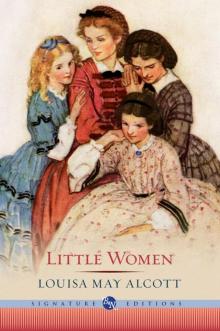 Little Women
Little Women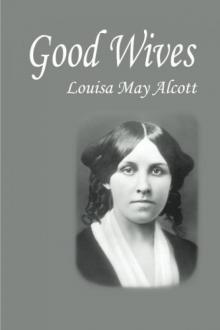 Good Wives
Good Wives Jo's Boys
Jo's Boys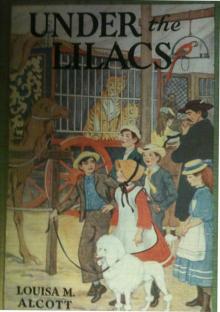 Under the Lilacs
Under the Lilacs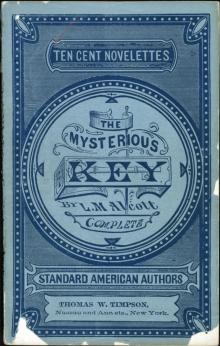 The Mysterious Key and What It Opened
The Mysterious Key and What It Opened The Inheritance
The Inheritance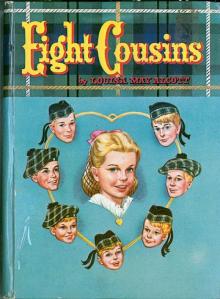 Eight Cousins
Eight Cousins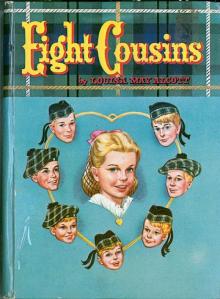 Eight Cousins; Or, The Aunt-Hill
Eight Cousins; Or, The Aunt-Hill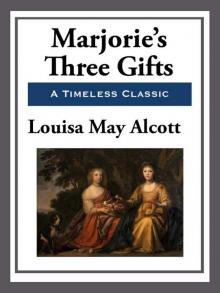 Marjorie's Three Gifts
Marjorie's Three Gifts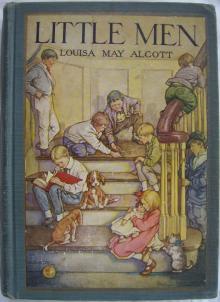 Little Men
Little Men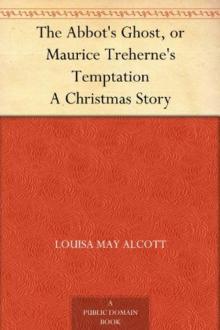 The Abbot's Ghost, or Maurice Treherne's Temptation: A Christmas Story
The Abbot's Ghost, or Maurice Treherne's Temptation: A Christmas Story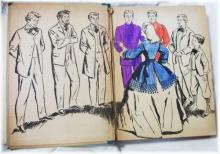 Rose in Bloom
Rose in Bloom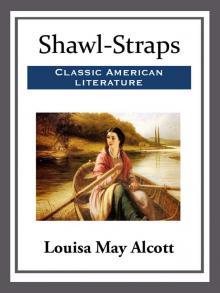 Shawl-Straps
Shawl-Straps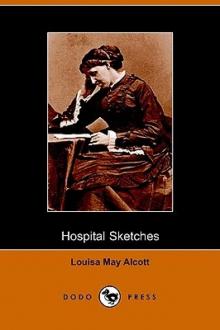 Hospital Sketches
Hospital Sketches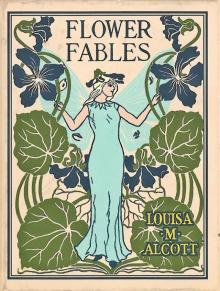 Flower Fables
Flower Fables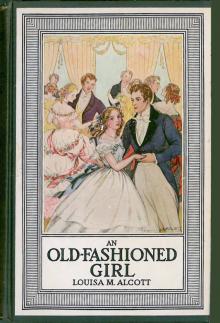 An Old-Fashioned Girl
An Old-Fashioned Girl The Candy Country
The Candy Country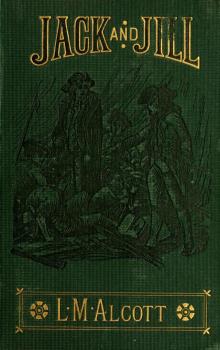 Jack and Jill
Jack and Jill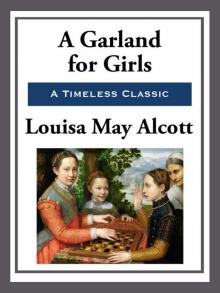 A Garland for Girls
A Garland for Girls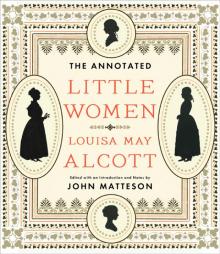 The Annotated Little Women
The Annotated Little Women A Classic Christmas
A Classic Christmas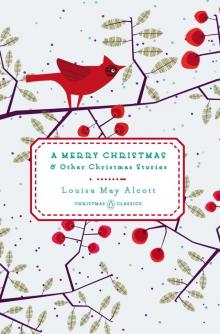 A Merry Christmas
A Merry Christmas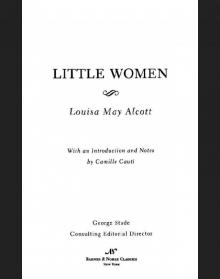 Little Women (Barnes & Noble Classics Series)
Little Women (Barnes & Noble Classics Series)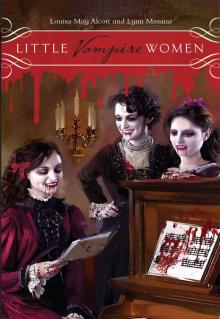 Little Vampire Women
Little Vampire Women